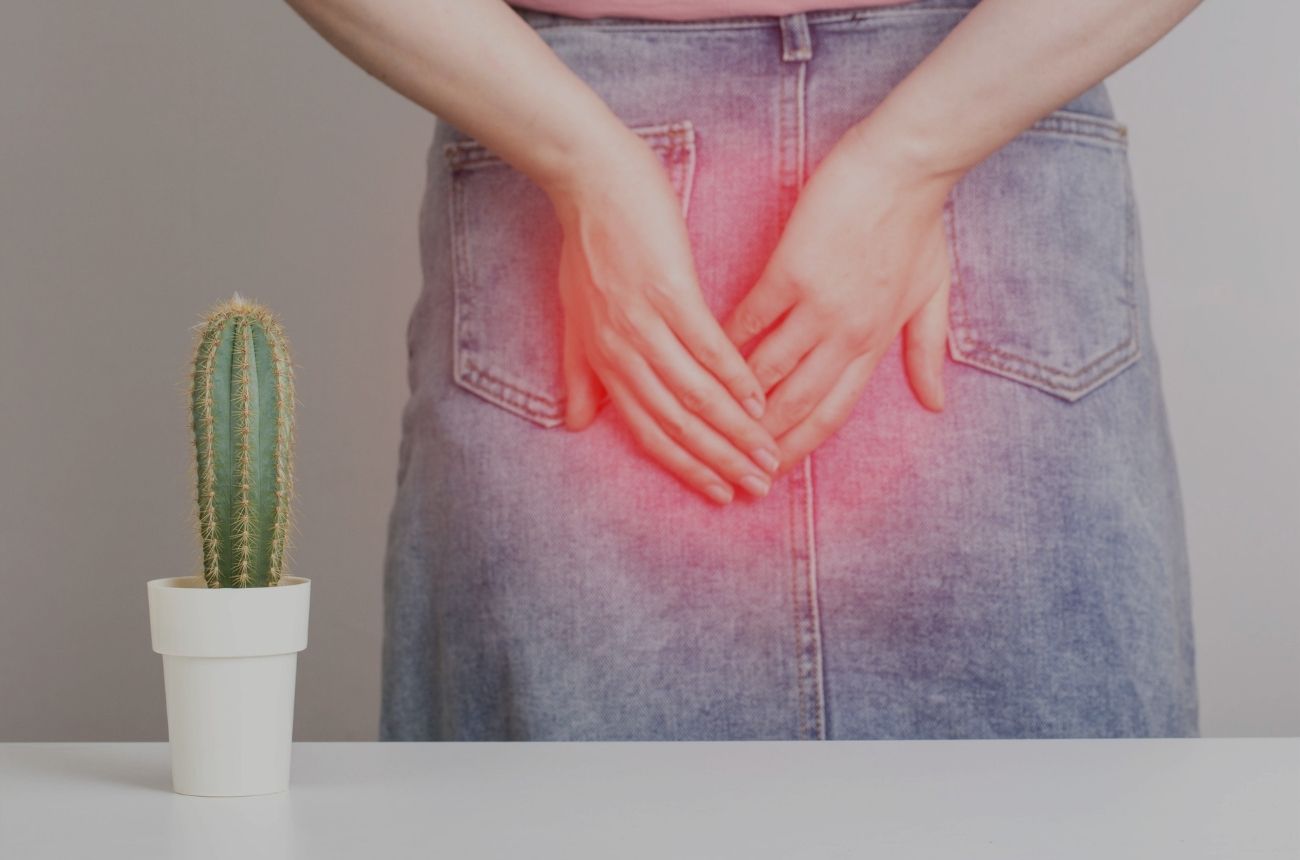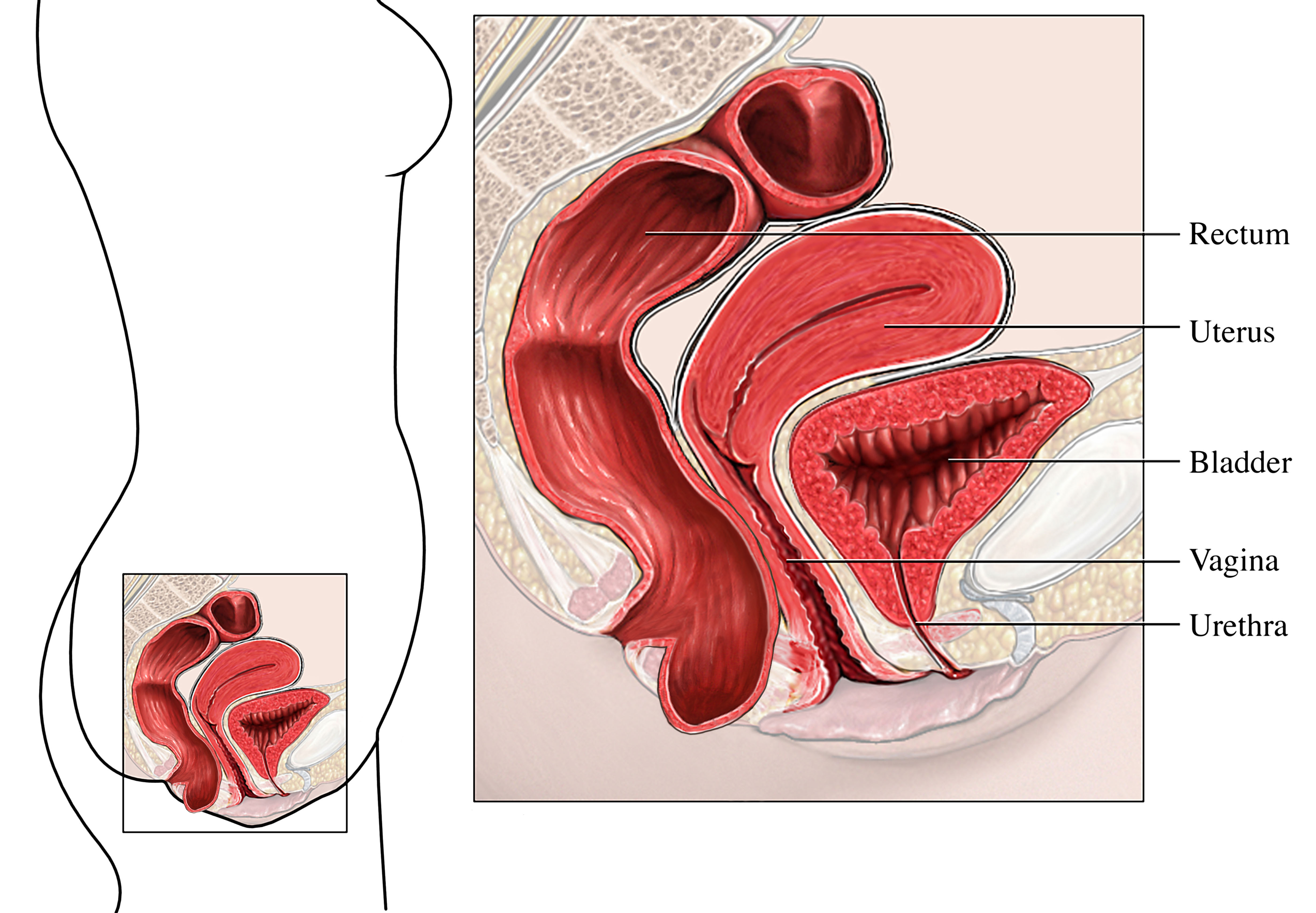
Key Facts
- A rectocele is when your rectum bulges forward into your vaginal wall.
- It can cause difficulty when going to the toilet.
- Pelvic floor exercises, and plenty of fluid and fibre in your diet can help.
What is a rectocele?
A rectocele is a type of pelvic organ prolapse. You may hear it called posterior vaginal prolapse. Prolapse means ‘fall out of place’.
If you have rectocele, the rectum (the lower part of the large bowel) bulges forward into the vaginal wall.
There are things you can do to help manage this condition.

What are the symptoms of a rectocele?
It is possible to have a small rectocele without noticing any problems. For some people, the symptoms of a rectocele have a big impact on their life.
Rectal symptoms
These can include:
- difficulty or straining to fully empty your bowels (poo)
- stool (poo) getting stuck in the bulge of your rectum — you may need to press to push it out
- urine (pee) flow is slow or seems to stop and start
- bladder or bowel urgency (feeling that you need to go to the toilet multiple times a day)
- incontinence or constipation
- pain
Vaginal symptoms
These can include:
- a feeling of heaviness, fullness or pressure in your vagina
- feeling that something is ‘falling out’ of your vagina
- pain during sexual intercourse
If your prolapse is bad, you may have a bulge coming out from your vagina.
Your symptoms may change if you are more active. Or they may get worse after a long day standing. Lower back ache can also be a symptom of rectocele.
What causes a rectocele?
A prolapse is a bulge caused by part of your bowel pushing forwards onto the wall of your vagina.
It happens when the thin wall of tissue between your vagina and rectum is weakened. This can happen in childbirth or at any time that there is pressure on the muscles around the vagina or rectum.
Women are more likely to have a rectocele if they:
- are pregnant
- have given birth
- have passed menopause
A rectocele can also be caused by:
- chronic (long term) constipation
- chronic lung diseases with coughing
- being overweight or obese
- repeated heavy lifting
Being sexually active does not cause a rectocele.
How is a rectocele diagnosed?
Your doctor will ask you about your symptoms and how they affect your daily life. They might examine you.
You might need an ultrasound or be referred to a specialist such as a gynaecologist (a doctor who manages conditions that affect the female reproductive system).
How is a rectocele treated?
Your treatment will depend on the severity of your rectocele. It may get worse overtime if not treated.
If you don’t have many symptoms, you might be encouraged to see a physiotherapist or nurse specialising in pelvic floor problems. They will assess you and may suggest pelvic floor exercises.
Try to prevent constipation by staying active, drinking plenty of water and eating enough fibre. Avoiding constipation will reduce the pressure in your rectal area (bottom).
Your doctor might also recommend using a pessary. This is a plastic device which goes into your vagina to support your uterus.
Surgery might be recommended if your symptoms can’t be managed by pelvic floor exercise and diet.
Trans-vaginal mesh
Trans-vaginal mesh implants are no longer approved in Australia due to the high risk of complications. If your doctor thinks you need a trans-vaginal mesh implant, they need special permission. Make sure you understand the risks and benefits of this surgery.
You can find out more about the problems with transvaginal surgical mesh on the Therapeutic Goods Administration website.
Can rectocele be prevented?
If you can feel your vaginal walls are getting weaker you may be able to help prevent a rectocele.
Some actions include:
- avoid heavy lifting (more than 10kg)
- watching your weight, as being overweight can make a rectocele worse
- have enough fibre in your diet
- drink plenty of water
- take your time on the toilet and avoid straining
- stay active and try pelvic floor exercises
If you have gone through menopause, your doctor may suggest hormone therapy (oestrogen). This can come as a:
- cream
- pessary
- vaginal tablet
This treatment may help ease some of your symptoms

